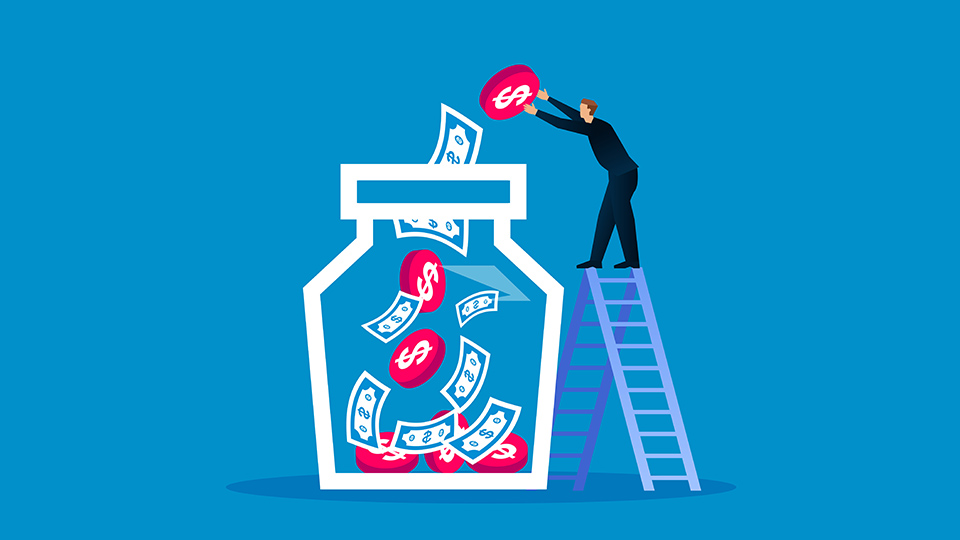The Australian federal government’s 2021 budget placed investment and stimulus front and centre as it manages a post-pandemic economy recovery.
The budget, which focuses on recovery and rebuilding, extends some of the business support measures that were already in place, and offers tax offsets and amendments to superannuation.
Here is a summary of some key outcomes of the Australian federal budget 2021 that apply to tax, superannuation, and business:
Personal income tax
LAMITO tax offset continues
The low and middle income tax offset (LAMITO) will be extended.
The program was due to expire, meaning some people would have faced a tax increase, however it has been extended for another year.
The LAMITO provides a $1080 refund to taxpayers who earn less than $90,000 per annum.
Previously announced personal tax cuts that eliminate the 37 per cent bracket are also on target to be delivered.
Simplified rules for tax residency
The government will replace the individual tax residency rules with a simplified framework called the ‘bright line’ test, which determines that “a person who is physically present in Australia for 183 days or more in any income year will be an Australian tax resident”.
Those who do not meet the primary test will be subject to secondary tests regarding measurable and objective criteria according to four factors including:
- The right to reside in Australia
- Australian accommodation
- Australian family
- Australian economic connections.
The new framework is expected to provide more certainty and reduced compliance costs for an increasing number of globally mobile employees.
The changes are expected to apply from July 1, 2021, once legislated.
Superannuation
Super minimum removed
Under current rules, workers earning less than $450 per month are not required to be paid the superannuation guarantee (SG) by their employer.
This rule will be abolished from July 1, 2022 to improve fairness and reduce unnecessary workforce casualisation.
Work test abolished
Presently, Australians aged 67 – 74 must fulfil a work test (or work test exemption) to qualify to make superannuation contributions, where they must be working for 40 hours in any 30-day consecutive period.
This test will be repealed, meaning it will no longer apply when making non-concessional superannuation contributions or salary sacrificed contributions. Individuals in this age group will also be able to access the non-concessional bring forward arrangement, subject to meeting eligibility criteria.
The change is expected to commence from July 1, 2022.
Downsizer contribution extended
The government will reduce the eligibility age for downsizer contributions from 65 to 60 years old.
From July 1, 2022, eligible people aged 60 years or older can choose to make a downsizer contribution into their superannuation of up to $300,000 per person ($600,000 per couple) from the sale of their home.
The measure is expected to encourage downsizing among retirees, freeing up the property market for younger buyers.
Business
Extension of expensing assets and loss carry-back rules
The temporary full expensing and loss carry-back measures will be extended for a further 12 months, as the government encourages businesses to continue investing.
Both measures, announced in last year’s October 2020 budget, will be extended until June 30, 2023.
Treasury expects the measures to create about 60,000 jobs and boost Australia’s gross domestic product (GDP) by $18 billion by the end of 2022-23.
Under the measure, businesses can write off the full value of any eligible asset they purchase.
Eligibility for the temporary full expensing measure remains unchanged. This means businesses with a turnover of less than $5 billion will be able to deduct the full cost of eligible depreciable assets of any value as long as it is acquired after 7.30pm on October 6, 2020 and first used or installed by June 30, 2023.
The extension to the loss carry-back also allows businesses with a turnover of less than $5 billion to carry back a tax loss up to the 2022–23 income year and apply it against tax paid in a previous income year, dating as far back as the 2018–19 income year. This will effectively provide for a tax refund in respect to any loss making year against taxes previously paid.
Employee share scheme
Employee share schemes (ESS) can be used as an effective way to reward and retain staff by issuing shares or options, often at a discount.
Under the changes, the termination of employment as a taxing point will be removed, allowing a potential further deferral of tax by the employee.
It will apply only to new employee share scheme interests issued from the first income year after the legislation is formally enacted. It is not yet confirmed whether it will apply from July 1, 2022 or July 1, 2023 and will depend on when the legislation is formally enacted.
Additionally, ASIC reporting obligations will be reduced for unlisted companies offering ESS interests valued at less than $30,000 per employee per year and for employers that do not charge or lend employees funds to acquire the interests.
The Patent Box opportunity
The Patent Box concession, which aims to encourage innovation and commercialisation of intellectual property in Australia, ensures eligible companies are taxed at an effective corporate tax rate of 17 per cent on income derived from Australian owned and developed patents.
Initially, the concession will be limited to Australian medical and biotechnology patents, but the government will consult on whether it should be extended to include the clean energy sector.
The concession will apply from July 1, 2022.
Tax offset for video game developers
The Digital Games Tax Offset will give video game developers a 30 per cent tax offset as part of the government’s Digital Economy Strategy.
The offset will be available to businesses that spend a minimum of $500,000 on qualifying Australian games expenditure and will be capped at $20 million per annum. The games cannot contain gambling elements.
The Digital Games Tax Offset will be available from July 1, 2022 to Australian resident companies or foreign resident companies with a permanent establishment in Australia.
Grants and other concessions
HomeBuilder, Family Home Guarantee, New Home Guarantee
The HomeBuilder grant, in support of the building industry, has been re-opened with an additional $774 million of funding over the next two years. Construction commencement can now take place within the first 18 months after issue in the first round with getting builders on-site, and with pressure on materials.
The Family Home Guarantee will provide an additional 10,000 places to single parents with dependants to get into the housing market with deposits as low as 2 per cent, while the New Home Guarantee will allow first-home buyers to build or buy new homes with deposits of 5 per cent. The latter program will be limited to 10,000 places.
Childcare subsidy
The rate of childcare subsidy will increase up to a maximum of 95 per cent (from 65 per cent) for children 5 years and under, with the cap of $10,560 abolished. This applies only to the second and subsequent children in families. This change will take place from July 1, 2022.
The subsidy is still means tested, and for families earning more than $174,390, the subsidy drops to 50 per cent or less.
Not-for-profits
Where not-for-profits (NFPs) would previously self-assess in respect to their income tax exemption status, those with an Australian Business Number (ABN) will now be required to submit an online form with the Australian Taxation Office (ATO) checking and confirming adherence to the eligibility criteria annually.
This requirement will commence from July 1, 2023 and is expected to ensure that only eligible entities are accessing the range of income tax exemptions.
Speak to the tax experts at LDB
If you’d like to know more about how the federal budget will impact your personal or business tax affairs, contact LDB by calling (03) 9875 2900 or completing the contact form below.






